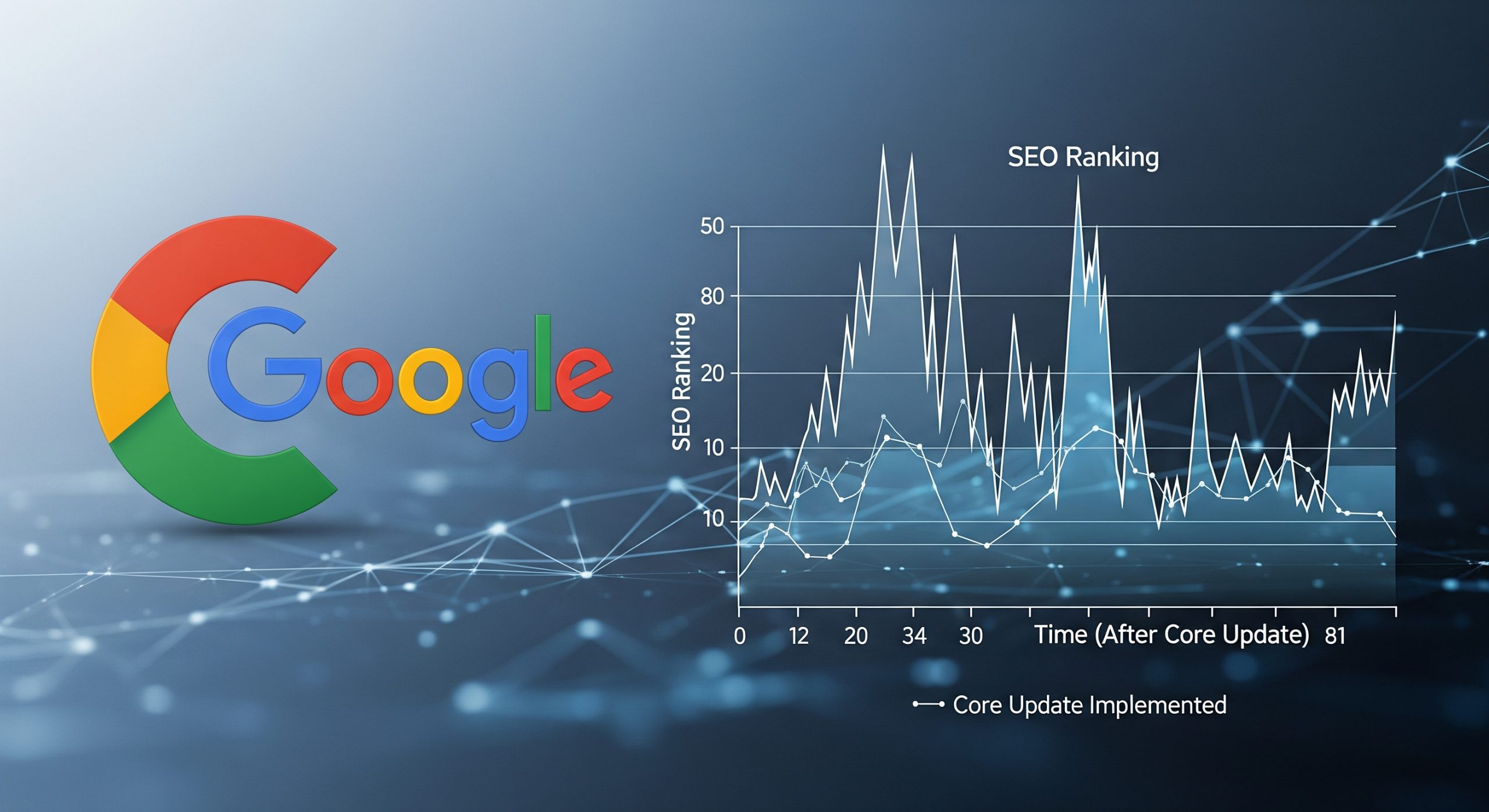How To Adapt Your Content Strategy For Gemini’s Answer Engine Model
Google's search landscape has transformed dramatically with the introduction of Gemini AI. This powerful answer engine no longer simply ranks web pages—it synthesizes information from multiple sources to deliver comprehensive, conversational responses. For businesses and content creators, this shift demands a fundamental reimagining of how we approach digital visibility. The old playbook of keyword stuffing and backlink quantity won't cut it anymore. Success now requires optimizing for SEO for Gemini, ensuring your content gets cited in AI-generated answers rather than buried in traditional search results.
The stakes are higher than ever. When Gemini pulls information to craft its responses, it draws from a select pool of trusted, well-structured sources. If your website isn't among them, you're invisible to a growing segment of searchers who never scroll past the AI overview. This comprehensive guide will walk you through the essential strategies for adapting your content to thrive in Gemini's answer engine model.
This AI-powered system processes text, images, and even video simultaneously. When a user asks a question, Gemini doesn't just pull up ten blue links. Instead, it generates a cohesive answer by synthesizing information from its most trusted sources. Your content must therefore be structured not just for ranking, but for extraction and citation.
The implications are profound. SEO for Google Gemini requires content that can be easily parsed, quoted, and attributed. This means crystal-clear headings, direct answers to specific questions, and demonstrable expertise. The conversational nature of Gemini's responses also means your writing style needs to align with how people naturally ask questions and seek information.
Essential structural elements include:
Schema markup plays a crucial role here. Implementing the FAQ schema, Article schema, and HowTo schema provides explicit signals about your content's structure and purpose. This machine-readable data helps Gemini understand not just what you're saying, but what type of information you're providing and how it relates to user queries.
Write the way people actually talk. Instead of targeting the keyword phrase "best project management tools," create content around "What are the best project management tools for remote teams?" This question-based approach aligns perfectly with how Gemini interprets user intent and formulates responses.
Conversational content also means addressing follow-up questions naturally within your text. When someone asks about project management tools, they're likely wondering about pricing, features, and implementation difficulty. Anticipate these secondary questions and weave answers throughout your content organically. This comprehensive approach signals depth and expertise to Gemini's evaluation algorithms.

Page speed directly impacts your chances of being selected as a source. Gemini prioritizes content that loads quickly and delivers information without friction. Optimize images, leverage browser caching, and minimize unnecessary scripts. Mobile responsiveness isn't optional—it's mandatory. With most searches happening on smartphones, Gemini heavily we
ights mobile performance in its source selection process. HTTPS security has become a baseline requirement rather than a competitive advantage. Gemini inherently trusts secure sites more than their unsecured counterparts. Beyond security, your site architecture must be logical and crawlable. Implement proper internal linking that helps both users and AI understand the relationships between your content pieces. A well-structured sitemap and clean URL hierarchy make it easier for Gemini to map your content ecosystem.
Core Web Vitals—metrics measuring loading performance, interactivity, and visual stability—have gained prominence in the Gemini era. These user experience signals tell the AI whether your site provides a quality experience worth recommending to searchers. Regularly audit these metrics and address any issues promptly. Google's E-E-A-T framework—Experience, Expertise, Authoritativeness, and Trustworthiness—has become even more critical in the age of Gemini. The AI actively seeks signals that content creators possess genuine knowledge and credentials in their field. Surface-level content written by generalists won't make the cut when Gemini evaluates sources for citation.
Google's E-E-A-T framework—Experience, Expertise, Authoritativeness, and Trustworthiness—has become even more critical in the age of Gemini. The AI actively seeks signals that content creators possess genuine knowledge and credentials in their field. Surface-level content written by generalists won't make the cut when Gemini evaluates sources for citation.
Demonstrate your expertise explicitly. Include author bios with relevant credentials and experience. Link to authoritative sources that support your claims. Share original research, case studies, or unique insights that can't be found elsewhere. Gemini rewards content that adds new value to the conversation rather than merely rehashing existing information.
Build topical authority by covering subjects comprehensively across multiple pieces of content. When your website becomes a recognized hub for specific topics, Gemini begins viewing you as a reliable source worth citing repeatedly. This requires consistent publishing of high-quality content within your niche rather than sporadic posts across diverse topics.
Third-party validation matters enormously. Earn backlinks from respected industry publications. Get mentioned in news articles and expert roundups. Encourage reviews and testimonials that verify your expertise. These external signals of authority help Gemini assess whether your content deserves trust and visibility.
Establish a content refresh schedule based on your topic's volatility. Industry news and trend-focused content may need monthly updates. Evergreen topics might only require quarterly reviews. When updating, don't just change dates—add new sections, incorporate recent developments, and remove outdated information. Gemini can detect superficial updates versus genuine content improvements.
Monitor your analytics to identify which pages receive significant traffic but may be losing ground. These pieces often benefit most from comprehensive refreshes. Update statistics with the latest data. Add new examples that reflect current market conditions. Expand sections where you can provide additional depth or address emerging related questions.
Monitor "zero-click" searches where users get their answers directly from Gemini without clicking through. While this might seem negative for traffic, it actually signals that your content is being cited and viewed as authoritative. Tools like Google Search Console can help you identify queries where your content appears in rich results and AI overviews.
Track branded search volume. When Gemini cites your content, users often follow up by searching directly for your brand or website. An increase in branded searches suggests your visibility in AI-generated answers is growing. Similarly, watch for upticks in direct traffic, which often follows an AI citation.
Engagement metrics reveal whether visitors who do click through find value. Time on page, pages per session, and low bounce rates signal that your content delivers on the promise made in Gemini's answer. These behavioral signals feed back into the AI's source quality assessment.
The businesses that thrive in this new landscape will be those who recognize that Gemini represents an opportunity, not a threat. By positioning your content as a trusted, citable source, you gain visibility that extends far beyond traditional search rankings. Start implementing these strategies today, and you'll build a foundation for sustained digital visibility as AI-powered search continues to evolve.
The stakes are higher than ever. When Gemini pulls information to craft its responses, it draws from a select pool of trusted, well-structured sources. If your website isn't among them, you're invisible to a growing segment of searchers who never scroll past the AI overview. This comprehensive guide will walk you through the essential strategies for adapting your content to thrive in Gemini's answer engine model.
What Makes Gemini's Answer Engine Different From Traditional Search?
Gemini represents a paradigm shift in how search engines interpret and deliver information. Unlike traditional algorithms that simply match keywords to indexed pages, Gemini understands context, nuance, and user intent at a sophisticated level. It reads content the way humans do—looking for meaning, relationships between concepts, and authoritative insights.This AI-powered system processes text, images, and even video simultaneously. When a user asks a question, Gemini doesn't just pull up ten blue links. Instead, it generates a cohesive answer by synthesizing information from its most trusted sources. Your content must therefore be structured not just for ranking, but for extraction and citation.
The implications are profound. SEO for Google Gemini requires content that can be easily parsed, quoted, and attributed. This means crystal-clear headings, direct answers to specific questions, and demonstrable expertise. The conversational nature of Gemini's responses also means your writing style needs to align with how people naturally ask questions and seek information.
How Should You Structure Content For AI Extraction?
Content structure has become the cornerstone of SEO for Gemini AI success. Gemini's algorithms scan for specific patterns that indicate comprehensive, reliable information. Your content architecture should make it effortless for the AI to identify key points and extract relevant answers.Essential structural elements include:
- Clear, descriptive H2 and H3 headings that pose direct questions
- Concise paragraph openings that immediately answer the question posed in the heading
- Strategic use of FAQ sections that mirror natural language queries
- Numbered lists for step-by-step processes and sequential information
- Bulleted lists for features, benefits, and comparative data
Schema markup plays a crucial role here. Implementing the FAQ schema, Article schema, and HowTo schema provides explicit signals about your content's structure and purpose. This machine-readable data helps Gemini understand not just what you're saying, but what type of information you're providing and how it relates to user queries.
Why Does Conversational Language Matter More Now?
The rise of voice search and natural language processing has fundamentally altered how people interact with search engines. Users no longer type fragmented keywords—they ask complete questions as if speaking to a knowledgeable assistant. Your content must mirror this conversational approach to remain relevant in Gemini's answer ecosystem.Write the way people actually talk. Instead of targeting the keyword phrase "best project management tools," create content around "What are the best project management tools for remote teams?" This question-based approach aligns perfectly with how Gemini interprets user intent and formulates responses.
Conversational content also means addressing follow-up questions naturally within your text. When someone asks about project management tools, they're likely wondering about pricing, features, and implementation difficulty. Anticipate these secondary questions and weave answers throughout your content organically. This comprehensive approach signals depth and expertise to Gemini's evaluation algorithms.

How Can Technical Optimization Boost Your Gemini Visibility?
Technical excellence forms the foundation of any successful SEO for the Gemini strategy. Before Gemini can consider citing your content, it must be able to access, crawl, and interpret your website efficiently. Technical barriers that might have been minor inconveniences in traditional search can completely exclude you from AI-generated answers.Page speed directly impacts your chances of being selected as a source. Gemini prioritizes content that loads quickly and delivers information without friction. Optimize images, leverage browser caching, and minimize unnecessary scripts. Mobile responsiveness isn't optional—it's mandatory. With most searches happening on smartphones, Gemini heavily we
ights mobile performance in its source selection process. HTTPS security has become a baseline requirement rather than a competitive advantage. Gemini inherently trusts secure sites more than their unsecured counterparts. Beyond security, your site architecture must be logical and crawlable. Implement proper internal linking that helps both users and AI understand the relationships between your content pieces. A well-structured sitemap and clean URL hierarchy make it easier for Gemini to map your content ecosystem.
Core Web Vitals—metrics measuring loading performance, interactivity, and visual stability—have gained prominence in the Gemini era. These user experience signals tell the AI whether your site provides a quality experience worth recommending to searchers. Regularly audit these metrics and address any issues promptly.
What Role Does Expertise And Authority Play?
 Google's E-E-A-T framework—Experience, Expertise, Authoritativeness, and Trustworthiness—has become even more critical in the age of Gemini. The AI actively seeks signals that content creators possess genuine knowledge and credentials in their field. Surface-level content written by generalists won't make the cut when Gemini evaluates sources for citation.
Google's E-E-A-T framework—Experience, Expertise, Authoritativeness, and Trustworthiness—has become even more critical in the age of Gemini. The AI actively seeks signals that content creators possess genuine knowledge and credentials in their field. Surface-level content written by generalists won't make the cut when Gemini evaluates sources for citation.
Demonstrate your expertise explicitly. Include author bios with relevant credentials and experience. Link to authoritative sources that support your claims. Share original research, case studies, or unique insights that can't be found elsewhere. Gemini rewards content that adds new value to the conversation rather than merely rehashing existing information.
Build topical authority by covering subjects comprehensively across multiple pieces of content. When your website becomes a recognized hub for specific topics, Gemini begins viewing you as a reliable source worth citing repeatedly. This requires consistent publishing of high-quality content within your niche rather than sporadic posts across diverse topics.
Third-party validation matters enormously. Earn backlinks from respected industry publications. Get mentioned in news articles and expert roundups. Encourage reviews and testimonials that verify your expertise. These external signals of authority help Gemini assess whether your content deserves trust and visibility.
How Often Should You Update Content For Gemini?
Content freshness has taken on new significance in Gemini's answer engine model. The AI prioritizes current information when responding to queries where timeliness matters. Stale content with outdated statistics or obsolete recommendations gets passed over for more recent sources.Establish a content refresh schedule based on your topic's volatility. Industry news and trend-focused content may need monthly updates. Evergreen topics might only require quarterly reviews. When updating, don't just change dates—add new sections, incorporate recent developments, and remove outdated information. Gemini can detect superficial updates versus genuine content improvements.
Monitor your analytics to identify which pages receive significant traffic but may be losing ground. These pieces often benefit most from comprehensive refreshes. Update statistics with the latest data. Add new examples that reflect current market conditions. Expand sections where you can provide additional depth or address emerging related questions.
What Metrics Indicate Gemini Optimization Success?
Traditional SEO metrics like keyword rankings still matter, but they tell an incomplete story in the Gemini era. You need to track different signals that indicate whether your content is being selected for AI-generated answers.Monitor "zero-click" searches where users get their answers directly from Gemini without clicking through. While this might seem negative for traffic, it actually signals that your content is being cited and viewed as authoritative. Tools like Google Search Console can help you identify queries where your content appears in rich results and AI overviews.
Track branded search volume. When Gemini cites your content, users often follow up by searching directly for your brand or website. An increase in branded searches suggests your visibility in AI-generated answers is growing. Similarly, watch for upticks in direct traffic, which often follows an AI citation.
Engagement metrics reveal whether visitors who do click through find value. Time on page, pages per session, and low bounce rates signal that your content delivers on the promise made in Gemini's answer. These behavioral signals feed back into the AI's source quality assessment.
Also Read:
10 Ways AI Transforms Your Content Workflow (You Didn’t Know)
Navigating the Future of Blogging: Why Clarity Beats Everything in AI-Powered Search
How Can You Stay Ahead In The AI-Powered Search Era?
Adapting your content strategy for Gemini's answer engine model isn't about abandoning traditional SEO fundamentals. It's about evolving those practices to meet the demands of AI-powered search. Focus on creating genuinely helpful, expertly crafted content that directly answers user questions. Invest in technical excellence that makes your site fast, secure, and easy to navigate. Structure information in ways that facilitate AI extraction while remaining readable for human visitors.The businesses that thrive in this new landscape will be those who recognize that Gemini represents an opportunity, not a threat. By positioning your content as a trusted, citable source, you gain visibility that extends far beyond traditional search rankings. Start implementing these strategies today, and you'll build a foundation for sustained digital visibility as AI-powered search continues to evolve.








